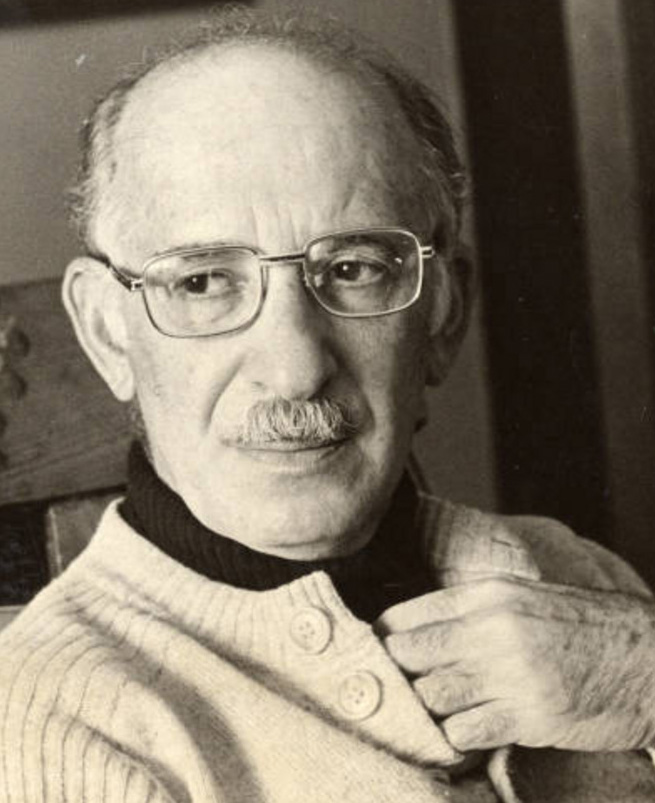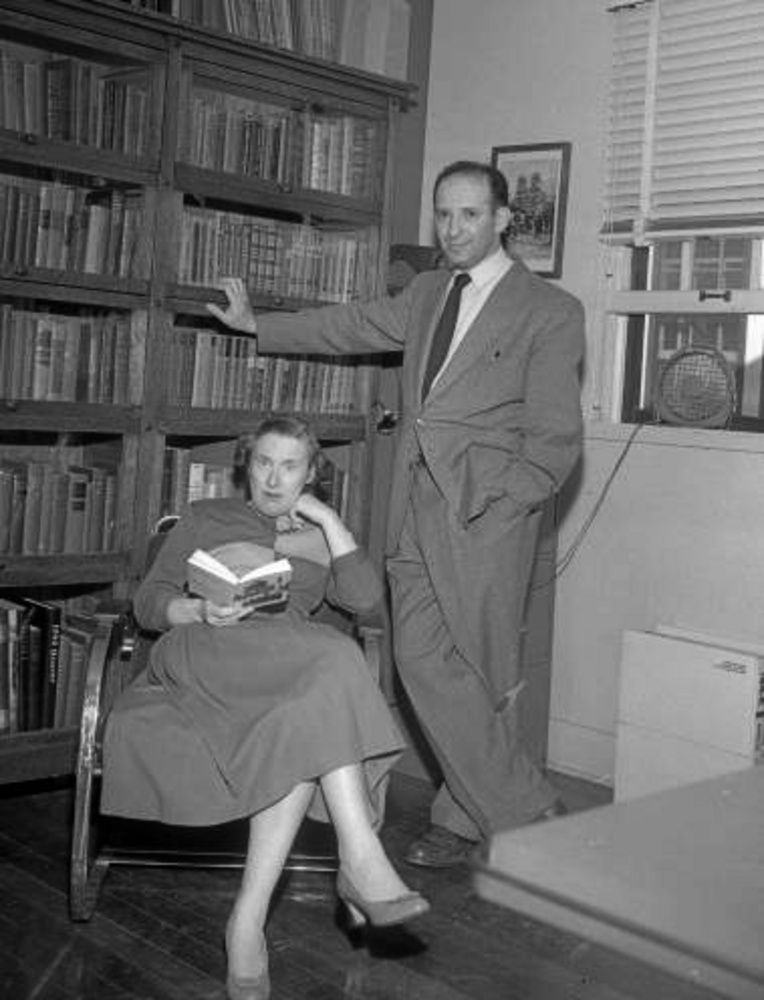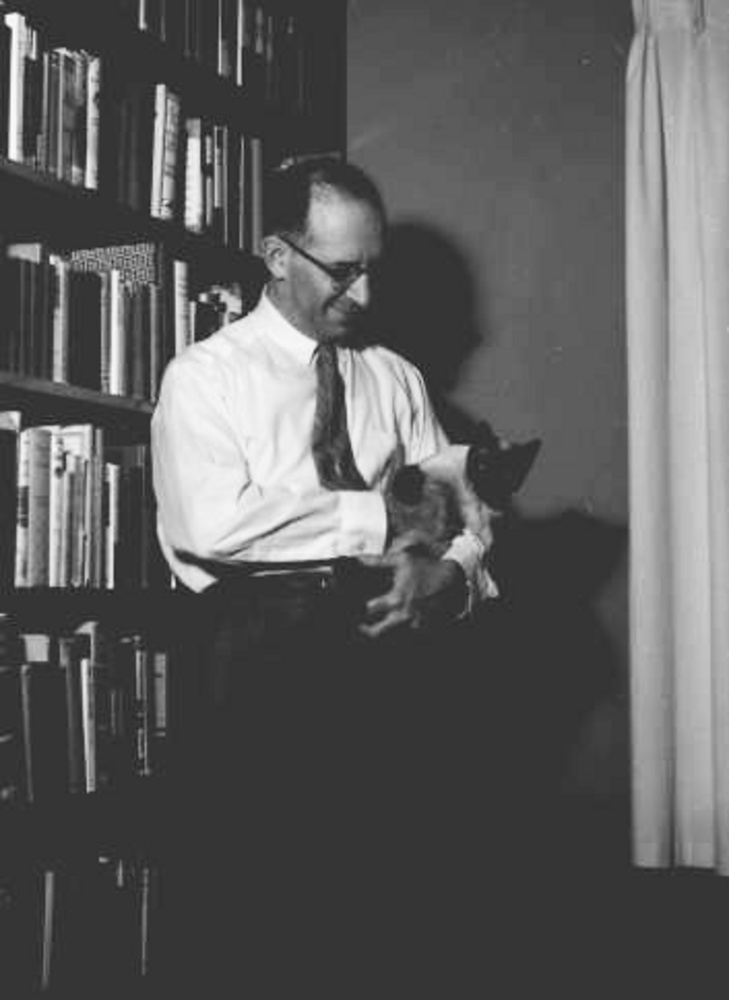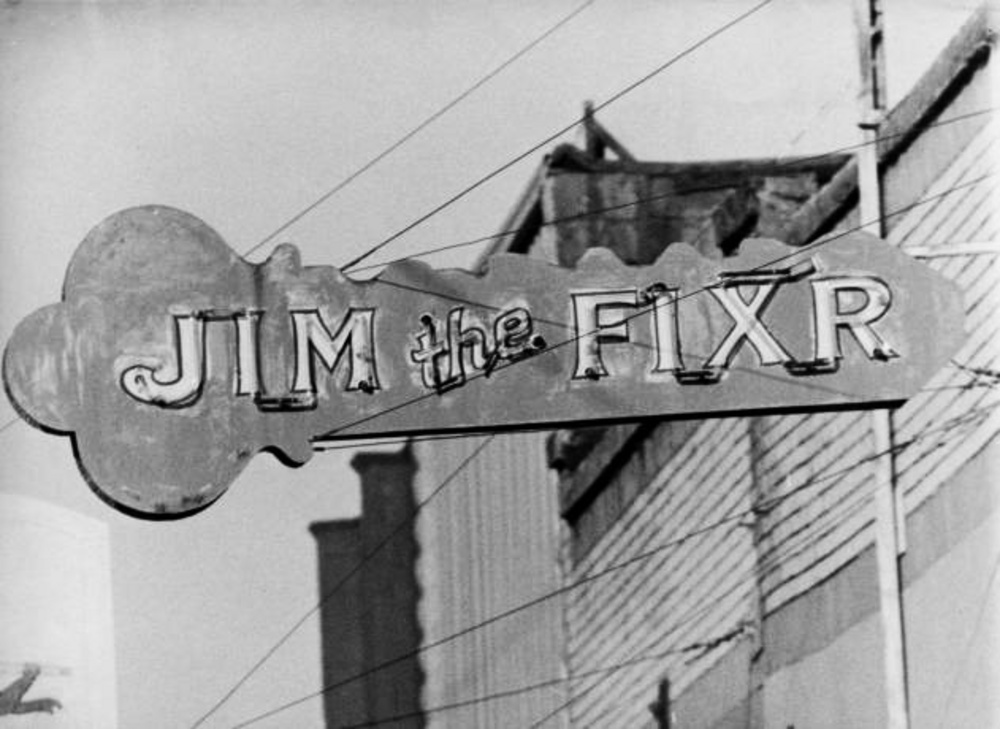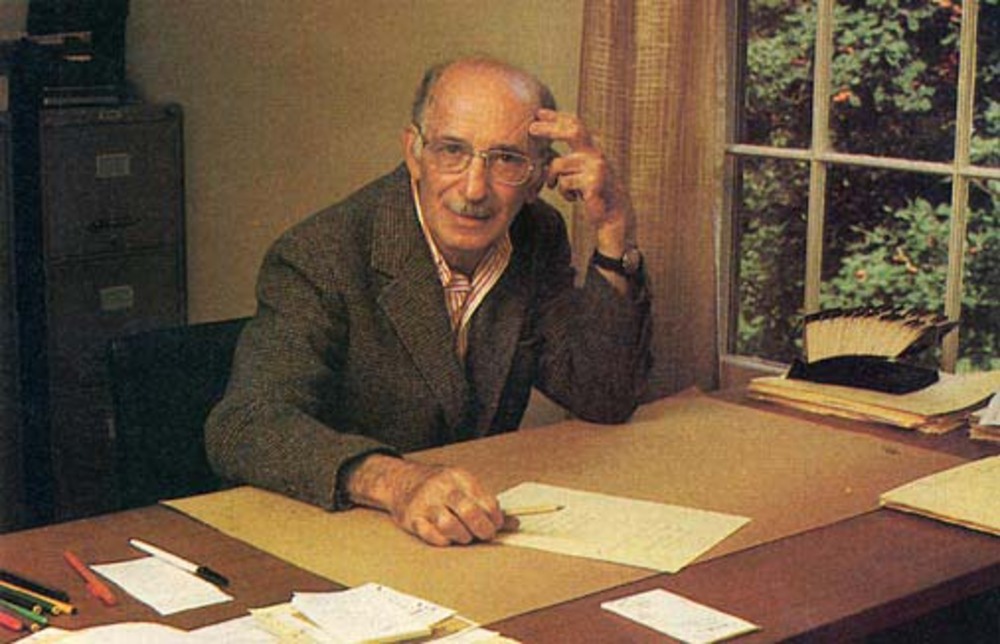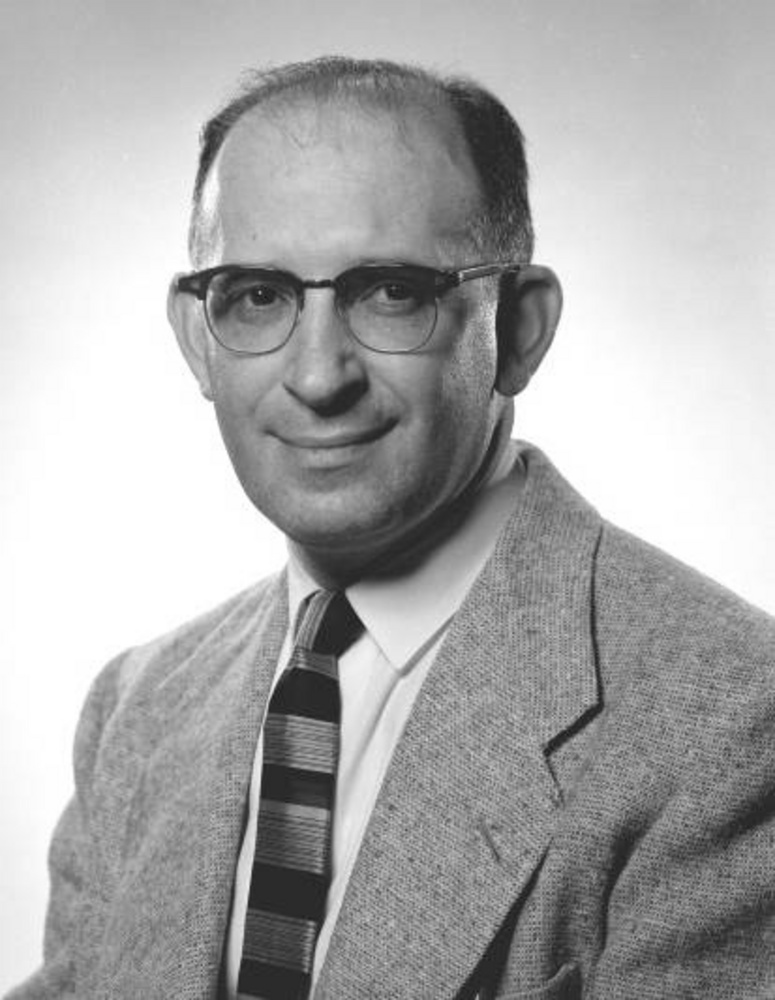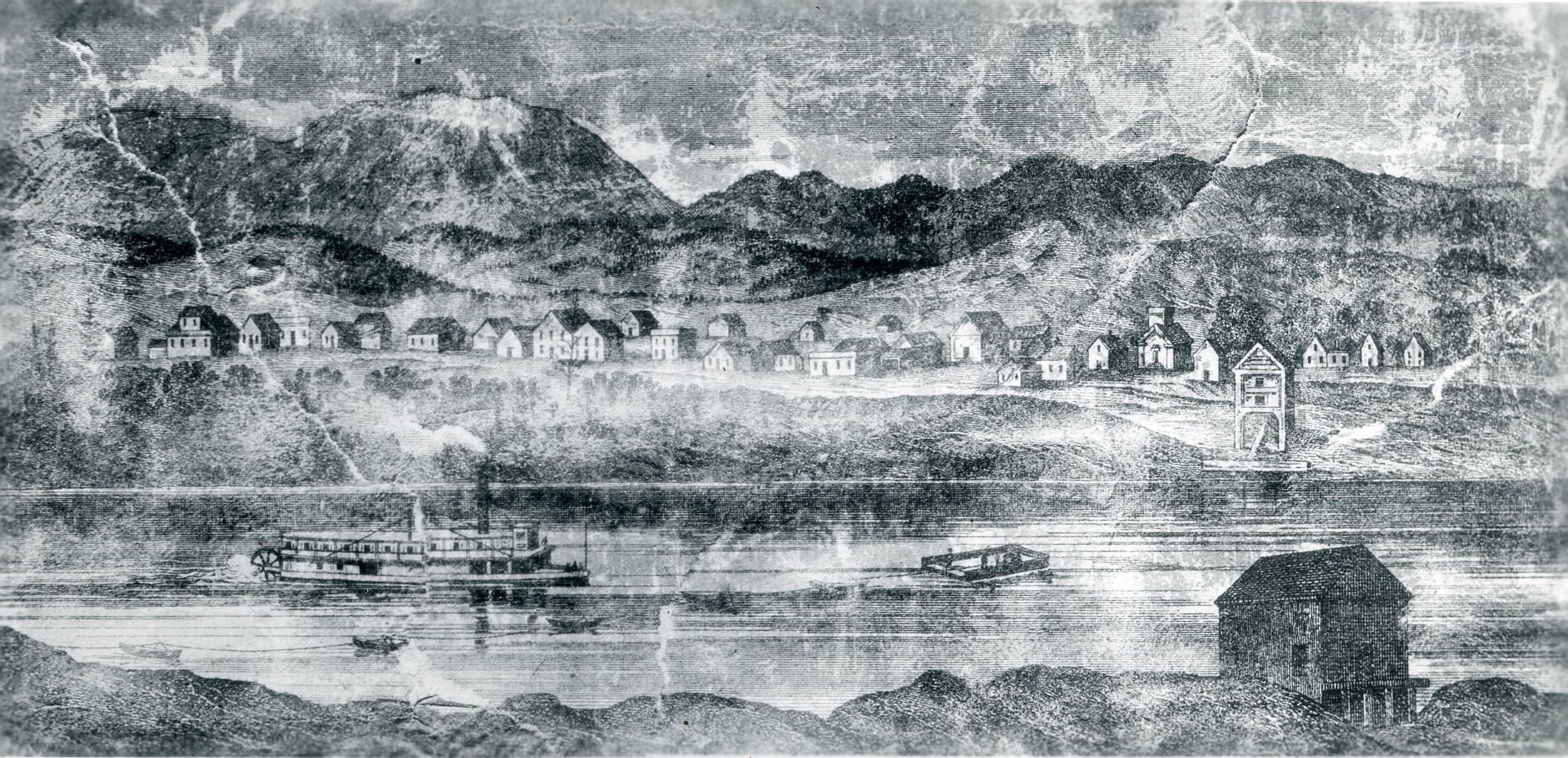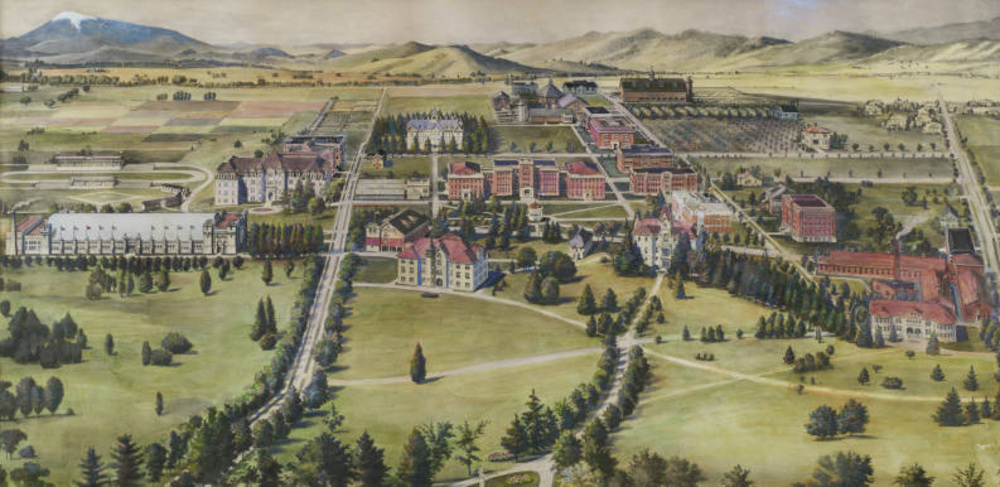Bernard Malamud, one of the great American writers of the twentieth century, is best known for his fiction about Jewish life in New York, such as The Assistant and The Magic Barrel, for his novel about baseball, The Natural, and for his Pulitzer Prize-winning novel, The Fixer. Nonetheless, Oregon claims him as part of its literary history. From 1949 to 1961, Malamud taught at Oregon State University, and he returned a number of times after he left to visit the close friends he made there.
Malamud first earned his place as a writer while living in Oregon. When he arrived in Corvallis, Malamud had been teaching at Erasmus Hall High School in Brooklyn and had struggled to become a writer since he had begun telling stories to entertain his friends. Born to Russian Jewish immigrants, with relatives involved in the Yiddish theater, he graduated from Erasmus High School and earned a master's degree at Columbia. During World War II he worked for the U.S. Census Bureau and taught English at Erasmus.
In Corvallis, Malamud wrote on a disciplined schedule, set a timer to limit visitors' interruptions, and developed the literary style for which he became well known. To his chagrin, he was allowed to teach only writing courses, not literature. But during his twelve years in Oregon, he published his first novels, The Natural (1952) and The Assistant (1957); a collection of short stories, The Magic Barrel (1958), which won the National Book Award; and A New Life (1961), a novel set in Oregon about an academic troublemaker pressing for reform.
Many thought his portrayal in A New Life of a "stranger from the East," who critiqued the anti-intellectualism of a western college, was pointed at Oregon State, but in truth he and his family had made close friends in Corvallis. He felt warmly about Oregon all his life and kept in touch after he left Oregon State to teach at Bennington College in 1961. The Fixer (1966), for which Malamud was awarded the Pulitzer Prize, drew its title from a sign he could see in Corvallis outside his writing room.
His limited teaching schedule at Bennington allowed Malamud the time to write, and he had good students who appreciated his talent. He soon joined the intellectual and cultural world of eastern artists and writers, but Corvallis had been the place, perhaps ironically, where he was not only able to get his start as a writer but also was best able to enjoy a family life. His subsequent works included Idiots First (1963), Pictures of Fidelman (1969), The Tenants (1971), Rembrandt's Hat (1973), Dubin's Lives (1979), and God's Grace (1982). The People and Uncollected Stories (1989) was published posthumously. Malamud died in 1986.
The Oregon State University library's Special Collections hold letters and papers, remembrances, and a multi-language collection of Malamud's books. In the archives are, among other papers, his handwritten letter of application expressing his desire to teach creative writing and his brief handwritten letter of resignation twelve years later.
-
![Bernard Malamud during visit to Oregon State University. 1970s.]()
Malamud, Bernard, ca. 1970s.
Bernard Malamud during visit to Oregon State University. 1970s. Oreg. State Univ. Archives, Oregon Stater collec., P195:88-2-malamud2
-
![Bernard Malamud and Faith Norris, 1955.]()
Malamud, Bernard, with Norris, Faith, 1955.
Bernard Malamud and Faith Norris, 1955. Oreg. State Univ. Archives, Barometer Photo Collec., P035:035 neg 1902a
-
![Bernard Malamud, 1960.]()
Malamud, Bernard, with cat, 1960.
Bernard Malamud, 1960. Oreg. State Univ. Archives, English Dept. Collec., P222:cat
-
!["Jim the Fixr" sign in Corvallis from which Bernard Malamud drew inspiration for the title of his 1976 Pulitzer Prize-winning novel, "The Fixer."]()
Jim the Fixr sign, Corvallis, 1976.
"Jim the Fixr" sign in Corvallis from which Bernard Malamud drew inspiration for the title of his 1976 Pulitzer Prize-winning novel, "The Fixer." Oreg. State Univ. Archives, News and Comm. Svcs, P057:5247
-
![Bernard Malamud, Feb. 1981.]()
Malamud, Bernard.
Bernard Malamud, Feb. 1981. Photo by Katha Pollit, courtesy Oreg. State Univ. Lib. Spec. Coll., Bernard Malamud Papers, Box 13, <em>Saturday Review</em>
-
![Bernard Malamud faculty portrait, 1958.]()
Malamud, Bernard, 1958.
Bernard Malamud faculty portrait, 1958. Oreg. State Univ. Archives, Harriet's Collec., HC3273
Related Entries
-
![Corvallis]()
Corvallis
Nestled on the west side of the mid-Willamette River, Corvallis is domi…
-
![Oregon State University]()
Oregon State University
Oregon State University (OSU) traces its roots to 1856, when Corvallis …
Map This on the Oregon History WayFinder
The Oregon History Wayfinder is an interactive map that identifies significant places, people, and events in Oregon history.
Further Reading
Oregon State University Library, Special Collections, Bernard Malamud Papers.
Smith, Janna Malamud. My Father is a Book. New York: Houghton Mifflin Co., 2006.

